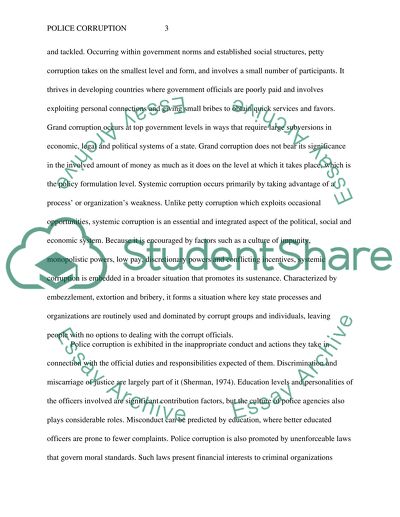Cite this document
(“Police corruption Research Paper Example | Topics and Well Written Essays - 2250 words - 1”, n.d.)
Retrieved from https://studentshare.org/law/1472650-police-corruption
Retrieved from https://studentshare.org/law/1472650-police-corruption
(Police Corruption Research Paper Example | Topics and Well Written Essays - 2250 Words - 1)
https://studentshare.org/law/1472650-police-corruption.
https://studentshare.org/law/1472650-police-corruption.
“Police Corruption Research Paper Example | Topics and Well Written Essays - 2250 Words - 1”, n.d. https://studentshare.org/law/1472650-police-corruption.


